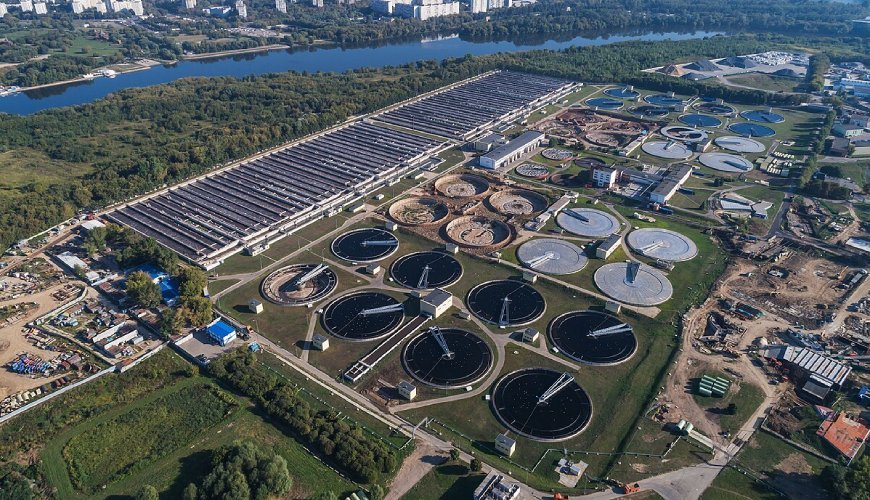Sewage Treatment Plant (STP)

- Office Address: Building No. 1, Office 101, Gera Gardens, Koregaon Park, Pune, Maharashtra 411001
- Email: sales@ptcwatertech.com
- Mobile Number.: +91 9922551445
Sewage Treatment Plant (STP)
Sewage Treatment is the process of removing contaminants from waste water. A sewage treatment plant (STP) is a facility, often including. physical, chemical, and biological processes, designed to receive and treat waste from domestic, commercial, agricultural and industrial sources to produce environmentally safe treated wastewater & to reduce fresh water consumption.
Benefits of Our Sewage Treatment Plant (STP)
Sewage Treatment Plant (STP) Explained
A Sewage Treatment Plant (STP) is a vital system that treats domestic and commercial wastewater to remove contaminants before releasing it into the environment or reusing it. It plays a key role in reducing pollution, protecting public health, and ensuring cleaner surroundings by efficiently processing sewage into treated water.
Environmental and Public Health Protection
Our STP helps safeguard the environment and public health by treating harmful pathogens, organic waste, and chemicals present in sewage. By discharging treated water, we reduce the risk of waterborne diseases and prevent contamination of natural water bodies such as rivers and lakes.
Resource Recovery and Reuse
Modern STPs are designed not just to treat sewage but also to recover valuable resources like treated water and bio-sludge. The treated water can be reused for gardening, flushing, or industrial processes, while the bio-sludge can be converted into compost or used for energy generation.
Regulatory Compliance and Cost Efficiency
Complying with municipal and environmental norms is crucial for residential societies, commercial complexes, and industries. Our STP ensures full compliance while also offering long-term cost savings through water reuse and efficient waste management, reducing dependency on freshwater sources.

